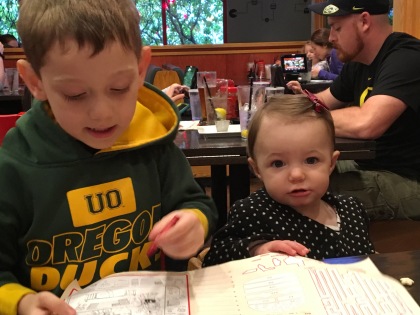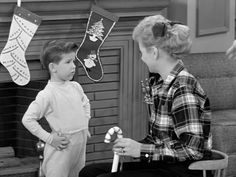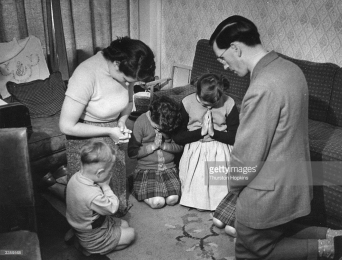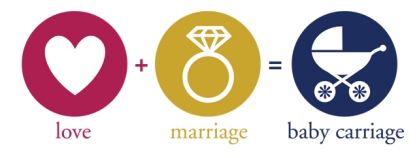“We suffer from depression, anxiety, and discontent. Wholesome family recreation can help us strengthen our relationships and reduce negative emotional and spiritual consequences. Wholesome recreation strengthens families”
~Mark A. Widmer and Stacy T. Taniguchi, Successful Marriages and Families, p. 225
Today I am going to talk about one of my FAVORITE subjects: family recreation! I have talked about a lot of deep (and important) subjects, but today I want to talk about how important it is to have fun as a family, the benefits that it provides, and some small (and big!) ways that you and your family can engage in wholesome family recreation.
My best friend was the oldest of three children. While her and her family are not members of the Church, they are very close. We went through school seeing many of our friends’ parents get divorced. However, our families stayed intact. Do you know what I think the biggest difference was? Our families had fun together. I watched her and her parents and brothers do all sorts of things together. They ate dinner together every night. Rented movies together. Walked the dog together. Went shopping together. Went to the gym together. Went on family vacations together. Played board games together. They didn’t live under the same roof and lead separate lives. They spent time together and formed close bonds and relationships.
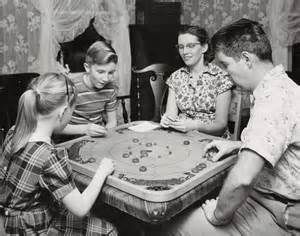
In Chapter 22 of Successful Marriages and Families, Mark A. Widmer and Stacy T. Taniguchi teach that:
“…when we spend time with or families by reading to our children, teaching them to ride a bike, playing a board game, gardening together, or going backpacking, we build knowledge, relationships, memories and skills. These forms of family recreation promote social and psychological growth” (p. 226).
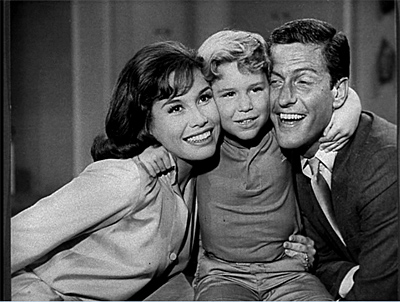
Wholesome family recreation does not just mean seeking pleasure, thrills, or having fun. There are many things that families can do to simply have fun, and while fun is a big part of wholesome family recreation, it is important to recognize that there are “good, better and best” ways to be together, and I will talk about that a little more when I give some ideas for what you can do in your own family.

One of the major reasons that families have for not engaging in wholesome family recreation is time. Between work, school, church, and extracurricular schedules, life is busy! However, “wholesome family recreation” doesn’t have to be some big, planned event. Going to the zoo or going to Disneyland are great ways to grow closer. In fact, big family vacations have been shown to strengthen family bonds. However, usually these big events or outings are not realistic on a day to day basis.

So, to help you with that, I want to give you a list of several things that you can do with your family on a daily, weekly, or monthly basis to ensure that you can find time to have wholesome family recreation!
- Read to your kids.
You could read a picture book or a chapter of a longer book to your kids after school while they eat a snack, or while dinner is cooking. While it may only take 5 or 10 minutes, they are likely to remember it for a long time.
- Go on a walk.
As more and more time is spent on technology, less and less time are spent outdoors. In fact, this is becoming such a problem that some people, children especially, are starting to get Nature Deficit Disorder (NDD). This just means that people are not getting enough time outdoors and their health and well-being are affected (Widmer, p. 229). So, going on a short walk as a family not only gives you and your time outdoors, it is an opportunity to exercise, talk, and spend time together.
- Play a game.
After dinner is over and before the rush of bedtime begins, play a game. If you have younger children maybe it’s “Candy Land” or “Go Fish.” With older children and teenagers, you can play cards and a plethora of other board games that are fun. This gives you time to talk and laugh together.
- Eat dinner together.
While this might not necessarily sound like recreation, it certainly can be. Make it a picnic and eat in your backyard. Or have an “indoor picnic” and set up a blanket in the living room. Or even just eat at the table instead in front of the television and talk.
These are just some basic things that you can easily do regularly. I’ll list a few more that you can also do for more special occasions, and even for a big trip.
- Take a drive to a new place.
I live in Oregon, so the forest, beach, mountains are less than an hour away in any direction. Taking a few hours to explore the area (you can even just stay in town) can be a great way to have fun together (that is if your kids cooperate ;))
- Go to the park.
Depending on where you live and the time of year, this can be a regular thing, or a special thing that you do on the weekends. It’s free and the activities are practically built in. Pro tip: Don’t sit on the bench and watch your kids play. Play with them! Swing, catch them as they go down the slide, play tag, get on that teeter-totter. I promise that it will be a lot more memorable for both you and them!
- Go to the zoo.
This can be a fun and educational experience. The nearest zoo where I live is two hours away, so it is more a planned event. But maybe the week before, you could learn about a new animal each day. Just google it and read about it with your kids. It will be more exciting for them to see a lion in person if they have been learning about it beforehand!
- Visit a museum or science center.
There is an art museum in my town where every first Friday of the month is free for families. Do a little research and see what events like this are in your town!
- Do a service project.
Okay, I know, I know, this doesn’t sound like fun or easy. But it can be! On Sunday afternoon, you could bake cookies with your kids and take them to the neighbor. Then you could home and eat more cookies together! There are so many small ways to serve those in your community that don’t take a lot of time, effort, or money.
- Plan a family vacation.
This could be for next month or next year! It could be small like staying a day or two in a cabin, or big like flying to a new state and seeing the sights. My family hasn’t been able to go on a vacation for a few years, but next April we are driving down the coast of California and going to Disneyland! This has taken a lot of saving and planning, but hopefully it will be a fun (and no matter what I am sure it will be memorable) week!
I am going to leave you with one more quote that sums up the importance of family recreation. It doesn’t have to be big. In fact, most of the time, it is small things that you fit into your busy days that will have the longest lasting impact on your families.
“We live in a world full of opportunities to engage in wholesome family recreation, if we know where to look for them. Wholesome family recreation is an intentional process. It can serve to promote positive development in our children, strengthen our marriages, and build strong families. We must know, however, what constitutes wholesome family recreation and purposefully seek opportunities for our families to meaningful recreate together.”
~Mark A. Widmer and Stacy T. Taniguchi, Successful Marriages and Families, p. 233
Image Sources:
https://www.google.com/url?sa=i&rct=j&q=&esrc=s&source=images&cd=&cad=rja&uact=8&ved=0ahUKEwiw79Wmhc_QAhVN3mMKHY_qAV4QjRwIBw&url=%2Furl%3Fsa%3Di%26rct%3Dj%26q%3D%26esrc%3Ds%26source%3Dimages%26cd%3D%26cad%3Drja%26uact%3D8%26ved%3D0ahUKEwiw79Wmhc_QAhVN3mMKHY_qAV4QjRwIBw%26url%3Dhttps%253A%252F%252Fwww.pinterest.com%252Fpin%252F534028468291314523%252F%26psig%3DAFQjCNGpJxg2euNiS6e1EkuDcK78Oo2GKw%26ust%3D1480545864857596&psig=AFQjCNGpJxg2euNiS6e1EkuDcK78Oo2GKw&ust=1480545864857596
https://www.google.com/url?sa=i&rct=j&q=&esrc=s&source=images&cd=&cad=rja&uact=8&ved=0ahUKEwiTgeaJhs_QAhUEy2MKHQxxAXMQjRwIBw&url=https%3A%2F%2Fwww.pinterest.com%2FJDAusmus%2Fdick-van-dyke-show%2F&bvm=bv.139782543,d.cGc&psig=AFQjCNFrZZdFjeuNZwOJEIXCo3-QL_VDhw&ust=1480546041437739
https://www.google.com/url?sa=i&rct=j&q=&esrc=s&source=images&cd=&cad=rja&uact=8&ved=0ahUKEwi0qLG_hs_QAhUUUWMKHY7jDy8QjRwIBw&url=https%3A%2F%2Fwww.pinterest.com%2Fpin%2F264797653062364616%2F&bvm=bv.139782543,d.cGc&psig=AFQjCNEc4sIzYomjtUDVIbLVs-kF5XerjQ&ust=1480546182920284
https://www.google.com/url?sa=i&rct=j&q=&esrc=s&source=images&cd=&cad=rja&uact=8&ved=0ahUKEwjbxpyBh8_QAhUOx2MKHWMCBD0QjRwIBw&url=http%3A%2F%2Fbakerhood.tumblr.com%2Fpost%2F20157114417%2Fthe-brady-bunch-guide-to-hawaii&bvm=bv.139782543,d.cGc&psig=AFQjCNGj1FXYWQnXJV3jZY5_bTPMe6D2eA&ust=1480546308178436





